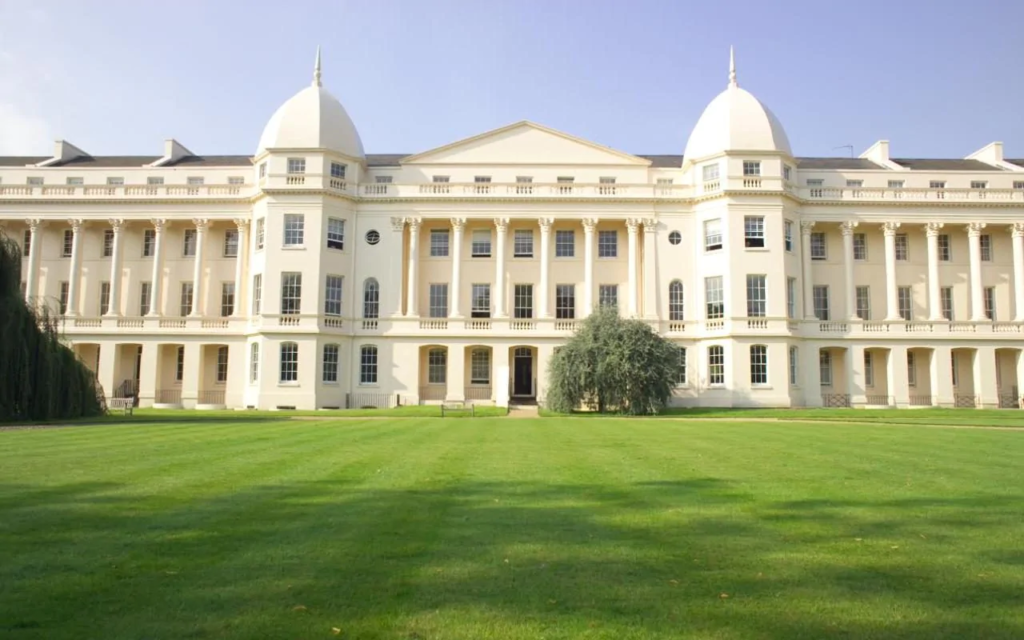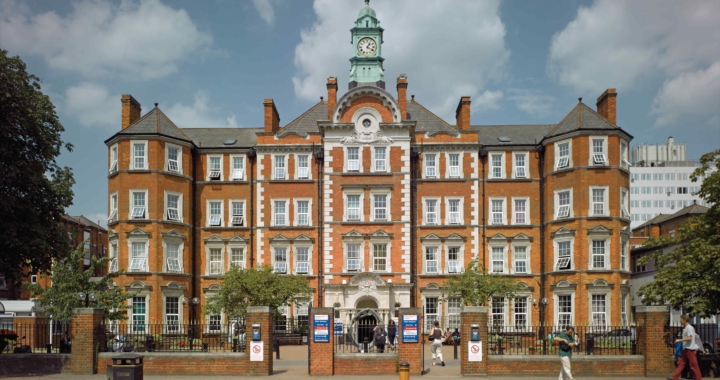Are you considering advancing your career with a prestigious MBA degree? Have you thought about pursuing an MBA in UK? An MBA in UK is a highly sought-after qualification that can open doors to numerous career opportunities worldwide. The United Kingdom has long been recognized as a hub for world-class education, and its MBA programs are no exception. With a rich history of academic excellence and a diverse, multicultural environment, the UK offers a unique setting for aspiring business leaders to hone their skills and expand their professional networks.
Choosing to pursue an MBA in UK means immersing yourself in a dynamic business ecosystem. The country’s strong ties to global commerce, coupled with its innovative approach to education, make it an ideal destination for those looking to gain a competitive edge in the international job market. Whether you’re aiming to climb the corporate ladder, switch careers, or launch your own venture, an MBA in UK can provide you with the knowledge, skills, and connections needed to achieve your goals.
Why Study MBA in the UK?
Opting for an MBA in UK comes with numerous advantages:
- Global Recognition: An MBA in UK is highly respected worldwide, enhancing your career prospects internationally.
- Quality Education: UK business schools are known for their rigorous academic standards and cutting-edge curricula.
- Cultural Diversity: Studying an MBA in UK exposes you to a melting pot of cultures, preparing you for global business environments.
- Networking Opportunities: MBA programs in UK attract students and faculty from around the world, offering unparalleled networking possibilities.
- Shorter Duration: Many MBA in UK programs can be completed in just one year, saving you time and money compared to two-year programs elsewhere.
- English Language Proficiency: Improve your business English skills in its native environment.
- Post-Study Work Visa: Recent changes allow international students to stay and work in the UK for up to two years after graduating.
- Industry Connections: UK business schools often have strong ties with leading companies, facilitating internships and job placements.
- Research Opportunities: Many MBA in UK programs emphasize research, allowing you to contribute to cutting-edge business theories and practices.
- Location Advantage: The UK’s proximity to Europe and its status as a global financial hub provide unique learning and career opportunities.
Top 5 College for MBA in UK
1. London Business School (LBS)
London Business School is consistently ranked among the top MBA programs globally. Located in the heart of London, LBS offers a dynamic learning environment with access to some of the world’s leading businesses and financial institutions.

| Aspect | Details |
|---|---|
| Ranking | #1 in UK, #2 in Europe (Financial Times Global MBA Ranking 2024) |
| Tuition Fees | £92,735 (for 2024 intake) |
| Additional Expenses | Approximately £25,000 – £30,000 per year |
| Notable Alumni | Kumar Mangalam Birla, Cyrus Mistry, Jim Ratcliffe |
| Post-grad Salary | Average of £117,000 |
| Test Scores Required | GMAT: Average 709 (range 600-800) or GRE equivalent |
| Program Duration | 15-21 months |
| Class Size | 497 students (2023 intake) |
| International Students | 89% |
2. University of Oxford: Saïd Business School
Oxford’s Saïd Business School combines centuries-old academic traditions with cutting-edge business education. The MBA in UK program at Oxford is known for its focus on responsible leadership and global perspectives.

| Aspect | Details |
|---|---|
| Ranking | #3 in UK, #10 in Europe (Financial Times Global MBA Ranking 2024) |
| Tuition Fees | £69,000 (for 2024 intake) |
| Additional Expenses | Approximately £15,000 – £20,000 per year |
| Notable Alumni | Rupert Soames, Cameron Winklevoss, Tyler Winklevoss |
| Post-grad Salary | Average of £104,000 |
| Test Scores Required | GMAT: Median 680 or GRE equivalent |
| Program Duration | 12 months |
| Class Size | 355 students (2023 intake) |
| International Students | 95% |
3. University of Cambridge: Judge Business School
Cambridge Judge Business School offers an intensive MBA in UK program that leverages the university’s world-renowned academic resources and its proximity to the “Silicon Fen,” a hub of high-tech businesses.

| Aspect | Details |
|---|---|
| Ranking | #2 in UK, #9 in Europe (Financial Times Global MBA Ranking 2024) |
| Tuition Fees | £61,000 (for 2024 intake) |
| Additional Expenses | Approximately £20,000 – £25,000 per year |
| Notable Alumni | Sandi Toksvig, Diezani Alison-Madueke, Eben Upton |
| Post-grad Salary | Average of £99,000 |
| Test Scores Required | GMAT: Median 690 or GRE equivalent |
| Program Duration | 12 months |
| Class Size | 221 students (2023 intake) |
| International Students | 93% |
4. Imperial College Business School
Imperial College Business School, located in London, is known for its strong focus on innovation, entrepreneurship, and technology. The MBA in UK program at Imperial combines business education with the college’s scientific and technological expertise.

| Aspect | Details |
|---|---|
| Ranking | #4 in UK, #16 in Europe (Financial Times Global MBA Ranking 2024) |
| Tuition Fees | £59,500 (for 2024 intake) |
| Additional Expenses | Approximately £20,000 – £25,000 per year |
| Notable Alumni | Jon Hancock, Ioannis Ioannou, Zoe Jervier |
| Post-grad Salary | Average of £92,000 |
| Test Scores Required | GMAT: Average 680 or GRE equivalent |
| Program Duration | 12 months |
| Class Size | 102 students (2023 intake) |
| International Students | 88% |
5. Warwick Business School
Warwick Business School, part of the University of Warwick, offers a highly regarded MBA in UK program. Known for its research excellence and innovative teaching methods, Warwick provides a comprehensive business education with a global perspective.

| Aspect | Details |
|---|---|
| Ranking | #5 in UK, #20 in Europe (Financial Times Global MBA Ranking 2024) |
| Tuition Fees | £47,950 (for 2024 intake) |
| Additional Expenses | Approximately £15,000 – £20,000 per year |
| Notable Alumni | Bernardo Hees, Linda Jackson, Andy Haldane |
| Post-grad Salary | Average of £88,000 |
| Test Scores Required | GMAT: Average 660 or GRE equivalent |
| Program Duration | 12 months |
| Class Size | 119 students (2023 intake) |
| International Students | 85% |
These top MBA in UK programs offer world-class education, diverse student bodies, and excellent career prospects. Each institution has its unique strengths and focus areas, allowing prospective students to choose an MBA in UK that best aligns with their career goals and interests.
MBA Course Types and Durations in the UK
When considering an MBA in UK, it’s essential to understand the various types of programs available. Each type caters to different career stages and personal circumstances, allowing students to choose the most suitable option for their needs.
| MBA Type | Duration | Key Features | Ideal For |
|---|---|---|---|
| Full-Time MBA | 12-21 months | Intensive, immersive experience | Career changers, young professionals |
| Part-Time MBA | 24-48 months | Flexible schedule, work while studying | Working professionals seeking career advancement |
| Executive MBA | 18-24 months | Weekend or modular format | Experienced executives, senior managers |
| Online MBA | 18-36 months | Fully remote learning, flexible | Self-motivated learners, busy professionals |
| Global MBA | 12-18 months | International focus, multiple campuses | Those seeking global business exposure |
The full-time MBA in UK remains the most popular choice, offering an intensive learning experience and ample networking opportunities. Part-time and Executive MBA programs allow professionals to continue working while pursuing their degree. Online MBAs are gaining popularity due to their flexibility, while Global MBAs offer a unique international perspective.
MBA in UK Fees & Scholarships
Pursuing an MBA in UK is a significant investment. Understanding the costs involved and available funding options is crucial for prospective students.
| Expense Type | Range (£) | Notes |
|---|---|---|
| Tuition Fees | 30,000 – 95,000 | Varies by institution and program type |
| Living Expenses | 12,000 – 30,000 per year | Depends on location and lifestyle |
| Study Materials | 500 – 1,500 | Books, software, case studies |
| Health Insurance | 500 – 1,000 | Required for international students |
Scholarships for MBA in UK programs:
- Merit-based scholarships: Offered by universities based on academic excellence and professional achievements.
- Diversity scholarships: Aimed at increasing representation from underrepresented groups.
- Women in Business scholarships: Designed to encourage more women to pursue MBA programs.
- Corporate sponsorships: Some employers may sponsor employees for MBA studies.
- Government scholarships: Offered by various countries for their citizens to study abroad.
Many UK business schools also offer their own scholarship programs. It’s advisable to check with individual institutions for specific opportunities.
MBA in UK Requirements
Securing admission to an MBA in UK program requires meeting certain criteria and navigating a competitive application process.

| Requirement | Details |
|---|---|
| Academic Background | Bachelor’s degree with a minimum 2:1 or equivalent |
| Work Experience | 3-5 years on average (varies by program) |
| GMAT/GRE Score | GMAT: 600-750 range; GRE: equivalent scores |
| English Proficiency | IELTS: 6.5-7.5; TOEFL: 100-110 |
| Application Essays | Personal statement, career goals essay |
| Letters of Recommendation | Usually 2-3 professional references |
| Interview | In-person or virtual, often required |
Additional requirements may include:
- CV/Resume
- Application fee
- Transcripts from previous academic institutions
- Proof of funds for international students
It’s important to note that requirements can vary between institutions, and meeting the minimum criteria doesn’t guarantee admission to an MBA in UK program.
MBA in UK Salary & Jobs
An MBA in UK can significantly enhance career prospects across various industries. Here’s an overview of common career paths and potential salaries:
| Industry | Typical Roles | Average Salary Range (£) |
|---|---|---|
| Consulting | Management Consultant, Strategy Consultant | 70,000 – 120,000 |
| Finance | Investment Banker, Financial Analyst | 65,000 – 150,000 |
| Technology | Product Manager, Tech Consultant | 60,000 – 110,000 |
| Marketing | Brand Manager, Marketing Director | 55,000 – 100,000 |
| Operations | Operations Manager, Supply Chain Manager | 50,000 – 90,000 |
| Entrepreneurship | Startup Founder, Business Owner | Varies widely |
Post-MBA career support often includes:
- Career coaching and mentoring
- Industry networking events
- On-campus recruitment fairs
- Internship opportunities
- Alumni networks for long-term career support
The UK’s two-year post-study work visa also provides international students with valuable opportunities to gain work experience after completing their MBA in UK.
Life while doing MBA in UK

Pursuing an MBA in UK offers a rich and diverse student experience. Beyond academics, students engage in various activities that enhance their personal and professional growth:
- Student Clubs and Societies: MBA programs often have clubs focused on specific industries or interests, allowing students to explore career paths and develop leadership skills.
- Case Competitions: Many UK business schools participate in national and international case competitions, providing practical problem-solving experience.
- Networking Events: Regular industry speaker series, alumni meetups, and networking sessions help students build valuable connections.
- Cultural Activities: With a diverse student body, MBA programs often celebrate various cultural events, fostering a global mindset.
- Sports and Wellness: Many universities offer excellent sports facilities and wellness programs to maintain a healthy work-life balance.
- Entrepreneurship Initiatives: Incubators, startup competitions, and mentorship programs support students with entrepreneurial ambitions.
- Community Engagement: Volunteering and social impact projects allow students to contribute to local communities while developing leadership skills.
- International Study Tours: Many MBA in UK programs include optional or mandatory international trips, providing global business exposure.
These activities not only enrich the MBA experience but also create lasting relationships and a strong professional network that extends well beyond graduation.
How to Choose the Right MBA Program in UK?
Selecting the ideal MBA in UK program requires careful consideration of various factors. Use this table to evaluate different programs:
| Factor | Considerations |
|---|---|
| Accreditation | Look for AMBA, EQUIS, or AACSB accreditation |
| Ranking | Consider FT, QS, and other reputable rankings |
| Curriculum | Assess core courses, electives, and specializations |
| Faculty | Research faculty expertise and industry connections |
| Career Support | Evaluate career services, placement rates, and alumni network |
| Location | Consider proximity to industries of interest |
| Class Profile | Look at diversity, average work experience, and class size |
| Cost and ROI | Compare tuition fees, living expenses, and potential post-MBA salary |
| Program Format | Choose between full-time, part-time, or executive MBA |
| International Exposure | Assess opportunities for global experiences and diverse cohort |
When choosing an MBA in UK, consider your career goals, budget, and personal circumstances. Visit campuses if possible, speak with alumni, and attend information sessions to gather firsthand insights about the programs you’re interested in.
Conclusion
Pursuing an MBA in UK is a transformative journey that can significantly impact your career trajectory. With world-class institutions, diverse program offerings, and a global business perspective, the UK stands out as a premier destination for MBA education. Whether you’re aiming to climb the corporate ladder, switch industries, or launch your own venture, an MBA in UK can provide the knowledge, skills, and connections to help you achieve your goals. Take the time to research thoroughly, reflect on your aspirations, and choose the program that best aligns with your career objectives and personal values.




